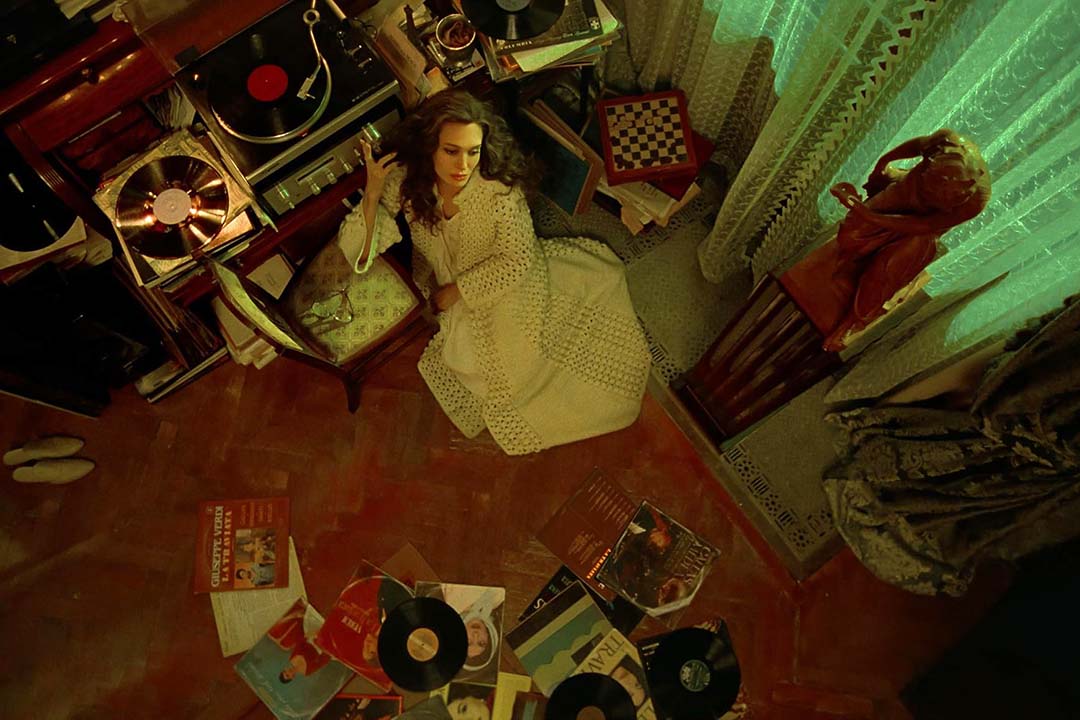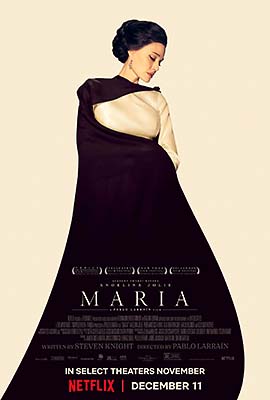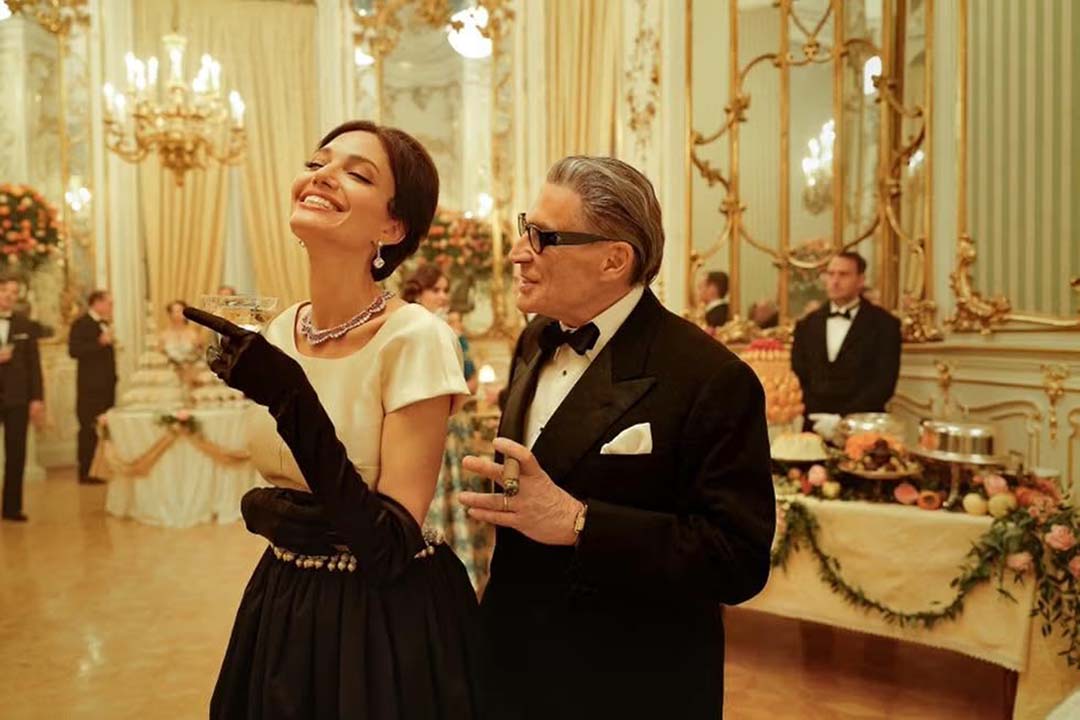On Screen: “Maria”

Maria
 Prediction: Angelina Jolie will be nominated for a Best Actress Academy Award for her luminous, imperious performance in “Maria.” Back in 2000, she won as Best Supporting Actress for “Girl, Interrupted,” so it’s been more than two decades between trips to the Oscar podium.
Prediction: Angelina Jolie will be nominated for a Best Actress Academy Award for her luminous, imperious performance in “Maria.” Back in 2000, she won as Best Supporting Actress for “Girl, Interrupted,” so it’s been more than two decades between trips to the Oscar podium.
Chilean filmmaker Pablo Larrain’s visually sumptuous fantasy about formidable Maria Callas begins in September 1977 with a poignant death scene in her luxurious apartment in Paris, punctuated by her singing “Ave Maria (Desdemona)” from Verdi’s “Otello.”
Larrain insists that — after spending seven months in arduous vocal training — Jolie’s dubbed voice is blended with the opera diva’s, particularly during the scenes that take place at the end of Callas’s life when her soprano range was weaker.
Basking in adulation from her adoring fans and addicted to a powerful sedative marketed as Mandrax, then-53 year-old Callas tells her faithful housekeeper (Alba Rohrwacher) and butler (Pierfrancesco Favino), “As of this morning, what is real and what is not real is my business.”

So don’t expect meticulously researched details of a traditional biography. Instead, there are fragmentary flashbacks: born in New York to Greek parents, Maria as a poor, fat teenager in Athens … glorious ovations at La Scala … her nomadic nine-year affair with predatory Greek shipping tycoon Aristotle Onassis (Haluk Bilginer), who paraded her like a trophy yet abruptly left her to marry widowed Jacqueline Kennedy.
“Perhaps we can speak a little about your life away from the stage,” an intrepid TV interviewer (Kodi Smit-McPhee) intones. “There is no life away from the stage,” Callas replies with tremulous vulnerability. “The stage is in my mind.”
Pablo Larrain is perhaps best known for his trilogy of one-word famous-women film titles: “Jackie,” “Spencer” and “Maria,” speculating on the enigmatic inner lives of Jacqueline Kennedy Onassis (played by Natalie Portman), Princess of Wales Diana Spencer (played by Kristen Stewart) and now Maria Callas.
If you’re intrigued, I highly recommend reading Sophia Lambton’s “The Callas Imprint: A Centennial Biography” (2023), which informed my evaluation of this film.
On the Granger Gauge of 1 to 10, “Maria” is an exaggerated yet elusive, elegiac 8, streaming on Netflix, starting on Wednesday, December 11.
 Susan Granger is a product of Hollywood. Her natural father, S. Sylvan Simon, was a director and producer at M.G.M. and Columbia Pictures. Her adoptive father, Armand Deutsch, produced movies at M.G.M.
Susan Granger is a product of Hollywood. Her natural father, S. Sylvan Simon, was a director and producer at M.G.M. and Columbia Pictures. Her adoptive father, Armand Deutsch, produced movies at M.G.M.
As a child, Susan appeared in movies with Abbott & Costello, Red Skelton, Lucille Ball, Margaret O’Brien, and Lassie. She attended Mills College in California, studying journalism with Pierre Salinger, and graduated from the University of Pennsylvania with highest honors in journalism.
During her adult life, Susan has been on radio and television as an anchorwoman and movie and drama critic, syndicating her reviews and articles around the world, including Video Librarian. She has appeared on American Movie Classics and Turner Classic Movies. In 2017, her book 150 Timeless Movies was published by Hannacroix Creek Books. Her website is www.susangranger.com.
